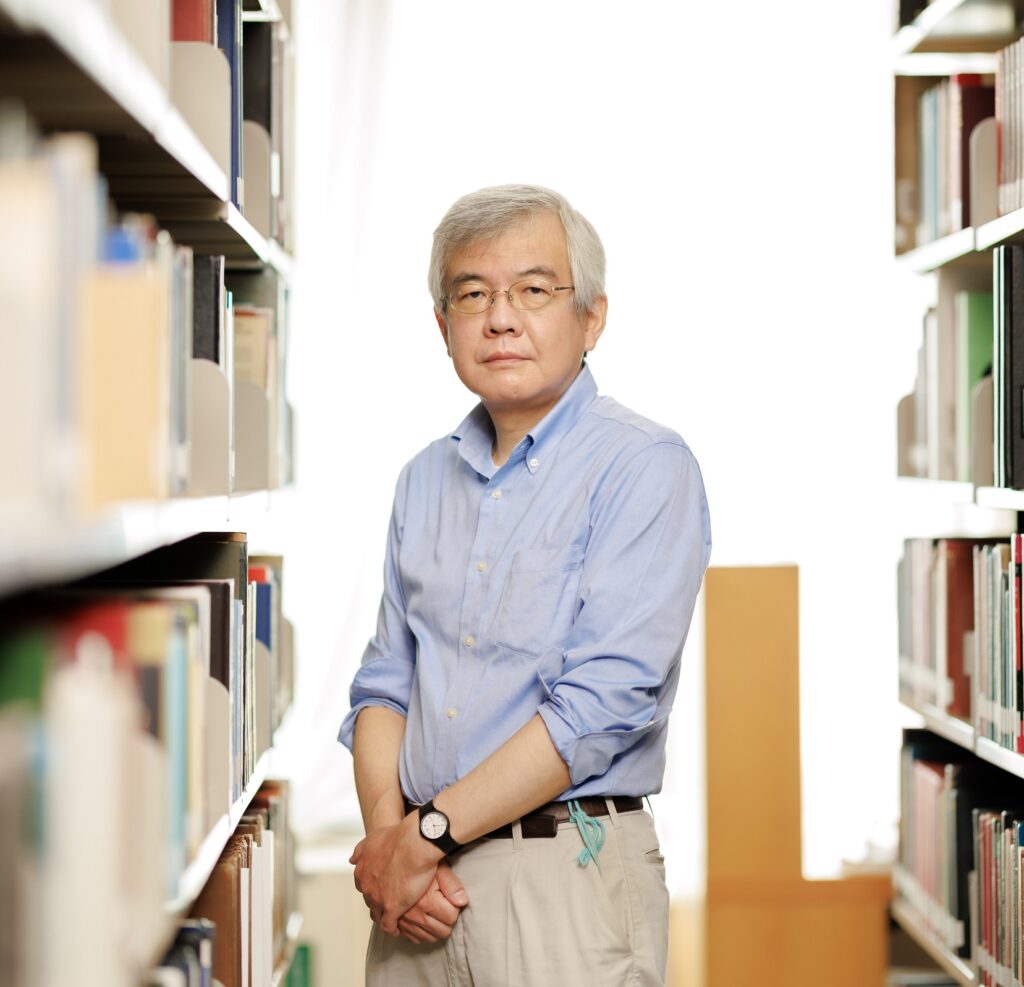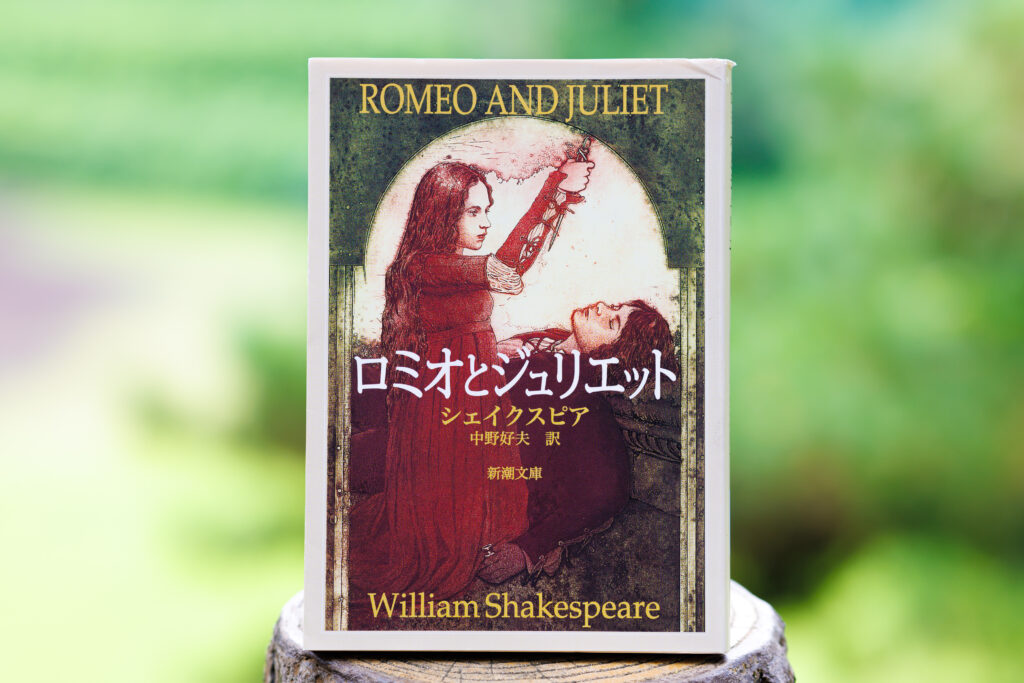
Professor Yoshiaki Sugiki of the Center for Language Education and Research studies the works of Shakespeare. Here he talks about how the appeal of Shakespeare’s works best appears on stage productions, the meaning of his research, and the classes, where students study how to spread knowledge of Kabuki to the world in English, a recent development in his teaching.
I am a researcher in English literature, and have studied the works of Shakespeare for many years now. I became interested in Shakespeare after seeing the film Romeo and Juliet when I was a junior high school student. I was fascinated by the tragic love story between a girl and boy, who were victims of a power struggle. After seeing the film, I read the play (in Japanese translation), and saw Yukio Ninagawa’s staging of it. I was completely captured by it.
Most of Shakespeare’s dramas were adapted from existing stories, events, or poems. Romeo and Juliet is no exception. However, the original story takes place over a longer time. Thanks to Shakespeare shortening this significantly, the work feels very fast-paced. One part of Shakespeare’s appeal is that his works move through the story swiftly, making for performances that keep spectators enthralled.
The enjoyment of seeing how a work varies by director or actor

Shakespeare’s plays were written to be performed by actors, so the stage is where they really shine. However, living in Japan, we are not able to have much daily exposure to Shakespeare’s plays in their homeland.
Instead, we can be exposed to performances that have been transposed to traditional performing arts, and quality adaptations set in Japan. Also, the atmosphere of the plays changes according to the director or actors, so it is fun to compare the differences. And by discovering commonalities among multiple works of the Bard, we can see how they came to be.
For example, there are a lot of water-related motifs in Shakespeare’s works. In Hamlet, we have the titular character being taken by boat by Claudius, his father’s killer, from Denmark to England. In Othello, the main character is ferried from Venice to Cyprus for military service. Stratford-upon-Avon, Shakespeare’s hometown, is located along the River Avon, and we can imagine how being brought up by these waterside landscapes would have affected these scenes.
The stories we call the classics, including works other than Shakespeare’s, have been passed down orally or in writing from generation to generation. This is likely to be because listening to or reading stories was essential for living. I see the real meaning of researching stories or plays to be here. Plays in particular, while considered not required or urgent during the COVID-19 pandemic, are actually vital for people.
Researching the Bard’s works, and passing on their appeal in the form of essays and so on, I feel, is my mission.
Learning how to spread the appeal of Kabuki to the world
Recently, I have been in charge of classes where students learn how to present the traditional Japanese performing arts of Kabuki and Bunraku to the world in English, and we consider these issues together.
When this subject, “Japanology,” was created, I placed myself in charge and, as I had always watched Kabuki on a regular basis, decided to make the topic traditional arts. Many Kabuki plays were written during the Edo period, under the feudal system, and often include the theme of unfair death such as killing your own child to protect the child of your lord.
In the same way, Shakespeare’s works were written in Europe four centuries ago, so on the surface, there are many aspects that are hard to understand as seen from contemporary Asia. However, no matter what era they were written in, if they have survived until this day, then they must have a universality to them.
Also, a lot of students have never seen Kabuki, so I hope that they will use these classes as an opportunity to visit the theater, and hopefully understand the appeal.
The book I recommend
“Romeo and Juliet”
by William Shakespeare, Japanese translation by Yoshio Nakano, Shincho Bunko

This was the first work of Shakespeare that I read. A lot of people might consider Shakespeare as difficult to access and avoid reading him. But classics have their own flavor, one you’ll always be able to appreciate, so I do recommend trying a volume.
-
Yoshiaki Sugiki
- Professor
Center for Language Education and Research
- Professor
-
Withdrew from the doctoral program in English and American literature at Sophia University after obtaining his M.A. After a career that included working as a contract lecturer at Sophia, he assumed his current post in 2016.
- Center for Language Education and Research
Interviewed: August 2022